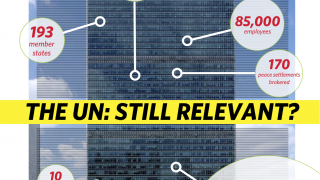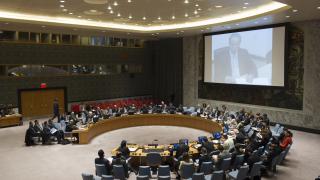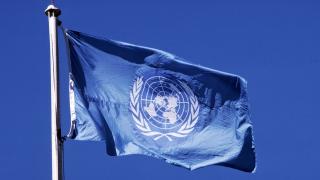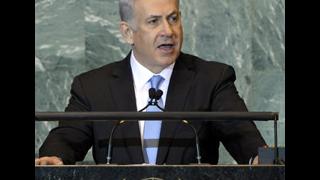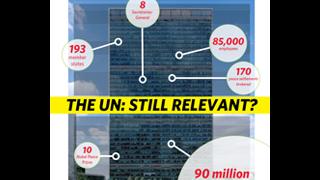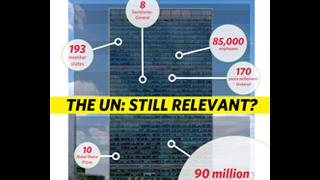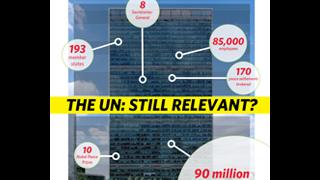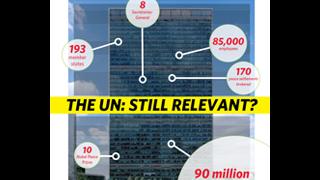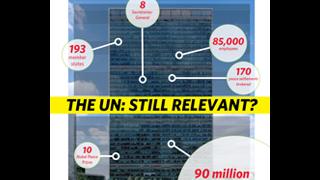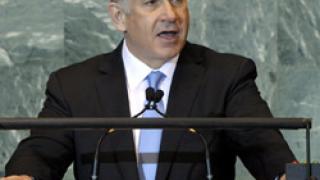
Oliver McTernan argues that the Palestinian UN bid is a symptom of the failure of the Oslo accords
Earlier this year I met with a politically diverse group of 30 young professionals and university students in Gaza who were discussing the timing of the Palestinian Authority's bid for membership of the United Nations. It was an impressive group, well able to articulate the case for and against seeking UN recognition. I found myself in agreement with those who argued that the timing of the bid was wrong.
The UN debate, they feared, would distract attention from the serious dysfunctional state of Palestinian life under occupation and UN recognition would, in effect, be a tacit endorsement of the present reality in the West Bank – a one-party securocrat state with an economy entirely dependent on the good will of donors and easy access to credit – and a Hamas-run Gaza that survives on the literally underground economy of the tunnels beneath the Egyptian frontier. The urgent need to promote Palestinian unity and to form an effective government capable of rising above factional interests risked being overlooked.
 It was the Arab Spring and the opportunity to engage directly with some of the young people on the streets of Tunis and Cairo that forced me to review this position and to realise that the Palestinian people cannot be expected to endure for much longer the humiliation of being an occupied, stateless nation. In recent months, we have witnessed the impact on Palestinian youth of developments in the wider region. They, too, have expressed a desire for dignity and self-determination as they took to the streets calling for national unity.
It was the Arab Spring and the opportunity to engage directly with some of the young people on the streets of Tunis and Cairo that forced me to review this position and to realise that the Palestinian people cannot be expected to endure for much longer the humiliation of being an occupied, stateless nation. In recent months, we have witnessed the impact on Palestinian youth of developments in the wider region. They, too, have expressed a desire for dignity and self-determination as they took to the streets calling for national unity.
There is a risk, of course, that international recognition of Palestine could give rise to immediate and unrealistic expectations. Many fear that if recognition is granted but people see little change in the realities of their daily life as the structures of occupation remain intact, it could spark a new intifada. The risk of violence is even greater, I fear, if the Palestinian call for UN recognition is rejected.
One does not have to spend much time in the region to appreciate the deep frustration at the failure of past negotiations to effect any real change in people's lives. Even those who have benefited from the recent upsurge in economic activity in the West Bank are under no illusion of the fragility of the current situation. They are well aware that the economy is built on "donor consumerism"and that overnight they could easily lose their job, their car or their home. Recent polls assert that up to 70% of Palestinians predict a new intifada unless the deadlock is broken and the situation on the ground changes soon.
In a recent article in The New York Times, Prince Turki Al-Faisal, a former Saudi ambassador to London and Washington, warned that if the US were to block the Palestinian bid for UN membership it would "risk losing the little credibility it has in the Arab world". He also warned that Israeli security would be seriously undermined, Iran potentially empowered, and the chances of another war in the region increased. Despite this warning, the US seems determined to oppose the bid.
In his speech to the General Assembly, US President Obama declared that "peace will not come through statements and resolutions at the UN" and that, ultimately, it is the Israelis and the Palestinians who must reach agreement on the issues that divide them: on borders, security, refugees and Jerusalem. Few people, I suspect, would disagree with this. What Obama failed to acknowledge is the simple fact that the process that the US has pursued over the past two decades has failed to deliver a just and durable agreement. The Palestinian bid for UN membership is a symptom of the failure of the Oslo accords to meet their aspirations and the deep frustration that is felt throughout the occupied territories as a consequence.
A durable peace, I believe, is possible, but it can only be achieved if there is a real paradigm shift that recognises the necessity of working at multiple levels and engaging people who have real constituency on both sides of the conflict. The fact that Dennis Ross is now Obama's key troubleshooter in the region does not inspire much confidence that the US approach will change in the foreseeable future. His book The Missing Peace: The Inside Story of the Fight for Middle East Peace describes a top-down approach that works on the supposition that by excluding the awkward or unwilling, a handpicked elite can produce an acceptable agreement. This illusion is blocking any chance of real progress. And it illustrates the serious US underestimation of the new power of the Arab voice, which will not tolerate for much longer the languishing of the peace process in a cul-de-sac.
Oliver McTernan is Co-Founder and Director of Forward Thinking, an organisation that works to promote a more inclusive peace process in the Middle East.

